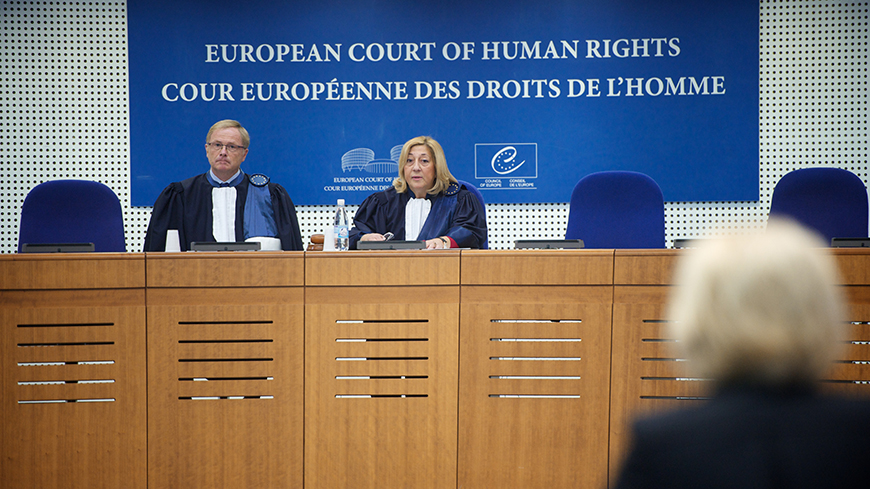The case of K2 v. the United Kingdom, declared inadmissible by the Court in a decision handed down on 9 March 2017, concerned the United Kingdom Government’s decision to deprive the applicant – a Sudanese national who was suspected of taking part in terrorism-related activities in Somalia – of his UK citizenship, and bar him from re-entering the country. The applicant claimed in particular that these decisions had violated his right to respect for private and family life under Article 8 of the European Convention and Human Rights, and had been discriminatory. The Court ruled that these complaints were inadmissible, as they were clearly without merit. Although an arbitrary denial or revocation of citizenship might in some circumstances raise an issue under Article 8, because of its impact on the private life of an individual, the Court found that no such issue arose in the present case. The Home Secretary at the time had acted swiftly and diligently, and in accordance with the law. The applicant had had a statutory right to appeal and access to judicial review but the UK courts had rejected his claims after giving them a comprehensive and thorough examination. Though some of the case against K2 had been kept secret for security reasons, his special advocate had had access to this information, and the nature of the case was broadly known to the applicant. The applicant also argued that he could not properly make his case from abroad, because of fears that his communications could be intercepted by Sudanese counter-terrorism authorities that would then harm him. In this respect, the Court held that Article 8 of the Convention could not be interpreted so as to impose an obligation on States to facilitate the return of every person deprived of citizenship in order for them to pursue an appeal against that decision. The UK court had rejected the applicant’s claims about not being able to argue his case from abroad, and the Court did not consider that it was in a position to call into question that finding. Furthermore, the UK court had adopted a cautious approach to the case given the absence of instructions from the applicant, but still found conclusive evidence that he had been engaged in terrorism-related activities. In any case, it was the applicant who had originally chosen to leave the country. Finally, the Court noted that the applicant would not be left stateless by the loss of UK citizenship (as he had Sudanese citizenship), and the interference with his private and family life caused by the deprivation of citizenship was limited. In these circumstances, the deprivation of citizenship did not raise issues under Article 8.
In its Chamber judgment in Ilias and Ahmed v. Hungary handed down on 14 March 2017, concerning the border-zone detention for 23 days of two Bangladeshi asylum-seekers as well as their removal from Hungary to Serbia, the Court held that there had been a violation of Article 5 §§ 1 and 4 (right to liberty and security) of the European Convention on Human Rights. In the Court’s view, the applicants’ confinement in the Röszke border-zone had amounted to detention, meaning they had effectively been deprived of their liberty without any formal decision containing reasons and without appropriate judicial review. The Court further held that there had been no violation of Article 3 (prohibition of inhuman or degrading treatment) of the Convention regarding the conditions of the applicants’ detention in the transit zone, but a violation of Article 13 (right to an effective remedy) of the Convention because the applicants did not have any effective remedy via which to complain about their conditions of detention. Lastly, the Court held that there had been a violation of Article 3 on account of the applicants’ expulsion to Serbia insofar as they had not had the benefit of effective guarantees to protect them from exposure to a real risk of inhuman or degrading treatment. The Court found in particular that, in the applicants’ asylum proceedings, the Hungarian authorities had: failed to carry out an individual assessment of each applicant’s case; summarily referred to a list of safe third countries; disregarded the country reports and other evidence submitted by the applicants; and imposed an unfair and excessive burden on them requiring them to prove that they were at real risk of chain-refoulement, which would have resulted in their facing inhuman and degrading reception conditions in Greece.
On 30 March 2017 the Court handed down a Chamber judgment in the case of Chowdury and Others v. Greece which concerned 42 Bangladeshi nationals who did not have work permits and were subjected to forced labour. Their employers had recruited them to pick strawberries on a farm in Manolada (Greece) but failed to pay their wages and obliged them to work in difficult conditions under the supervision of armed guards. In its judgment, the Court held that that there had been a violation of Article 4 § 2 (prohibition of forced labour) of the European Convention on Human Rights, finding that the applicants did not receive effective protection from the Greek State. The Court noted, firstly, that the applicants’ situation was one of human trafficking and forced labour, stressing that exploitation through labour was one aspect of trafficking in human beings. The Court then held that the State had failed in its obligation to prevent human trafficking, to protect the victims, to conduct an effective investigation into the offences committed and to punish those responsible.


